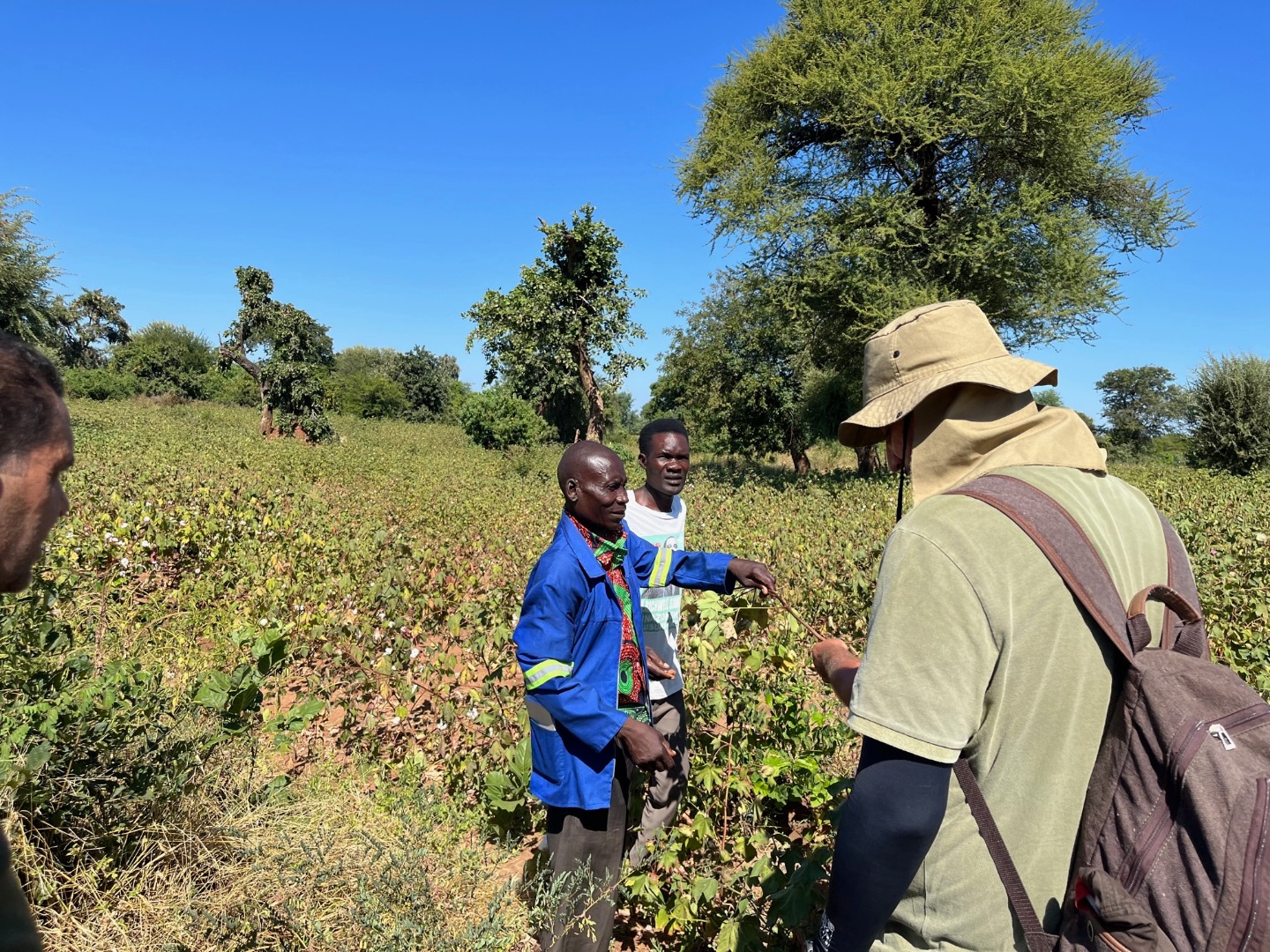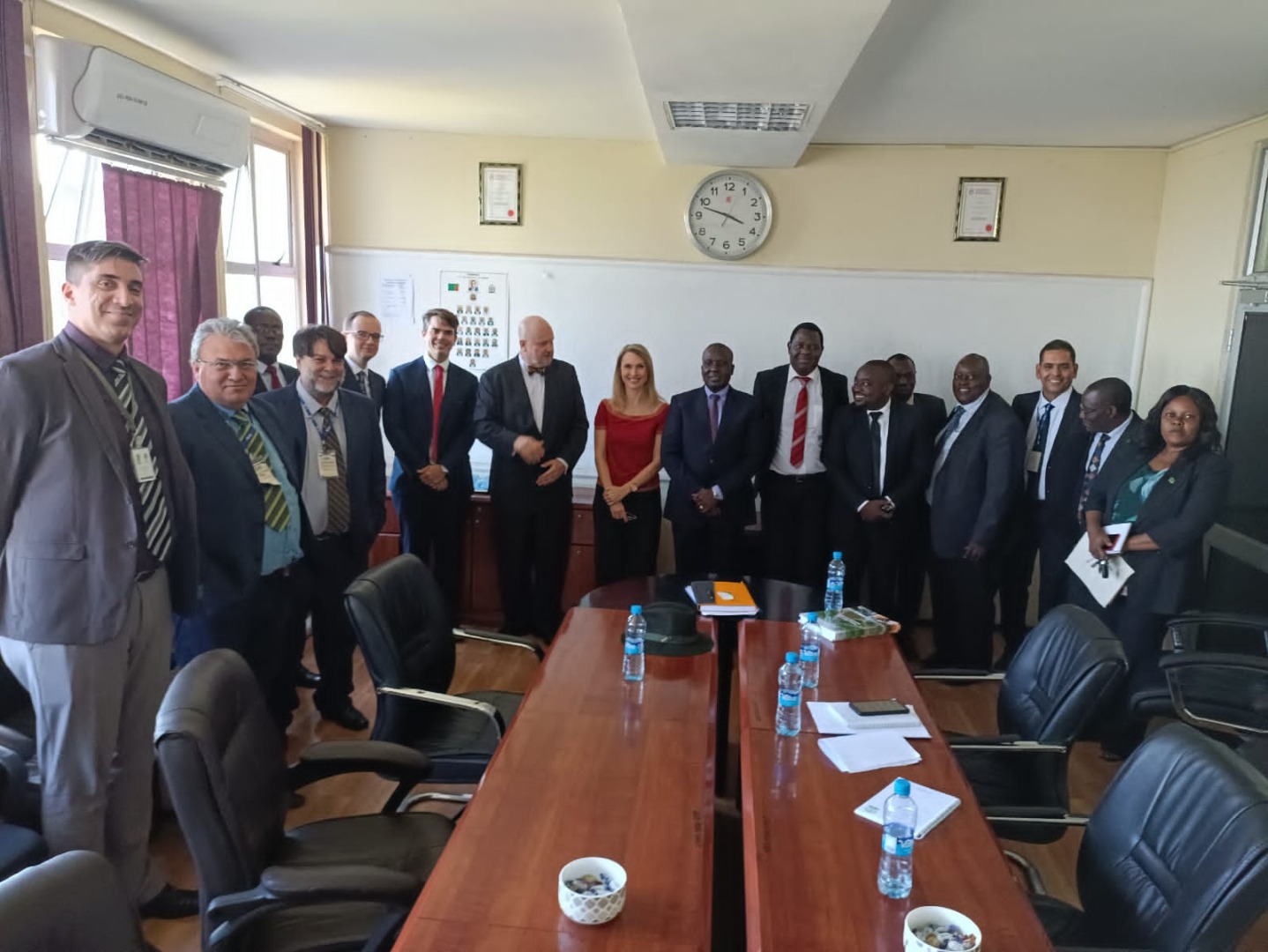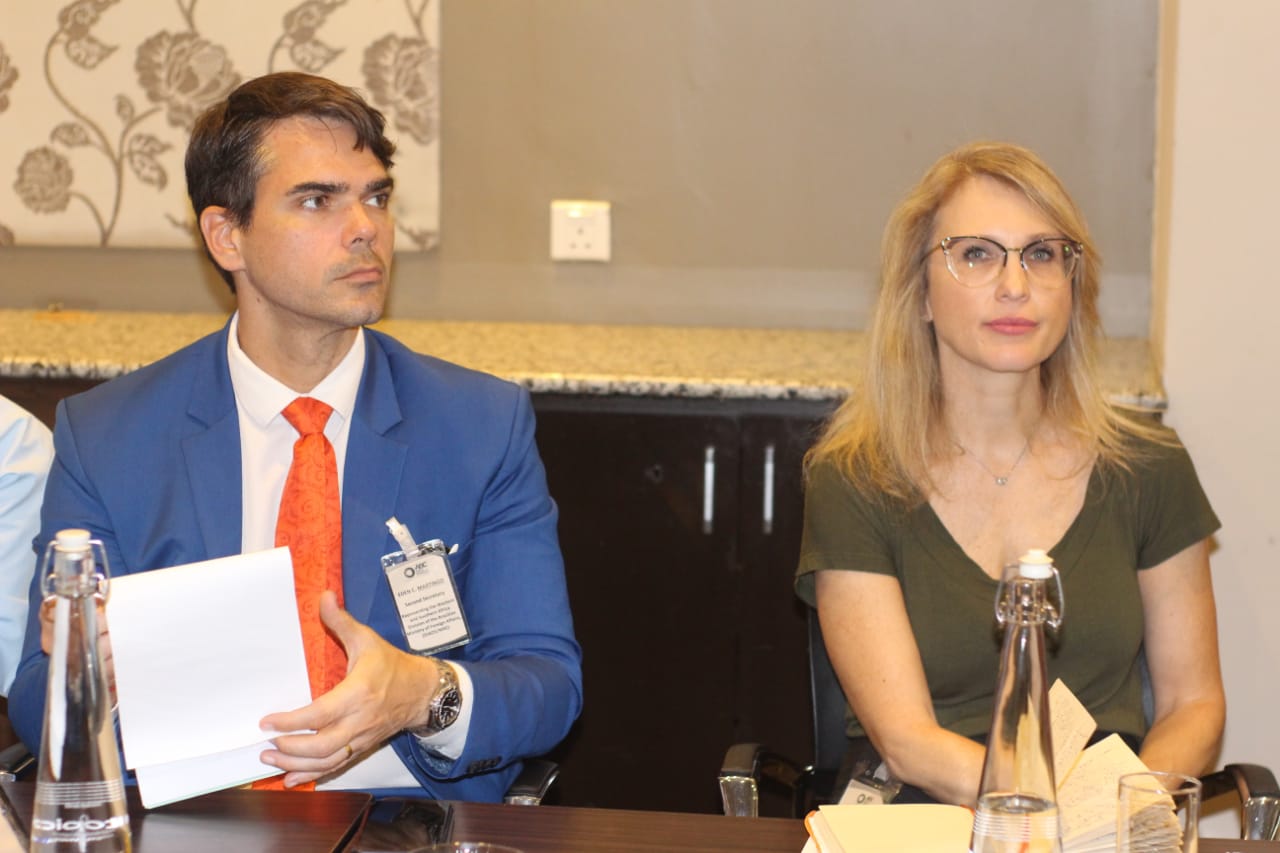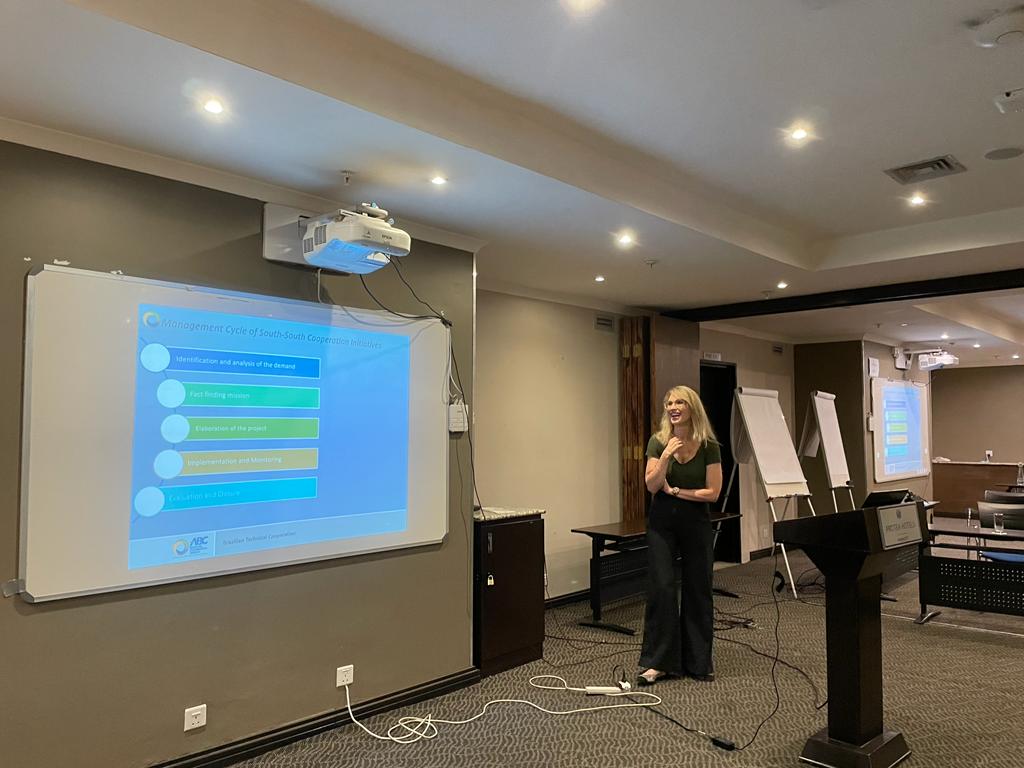Notícias
Brazil and Zambia negotiate technical cooperation in cotton
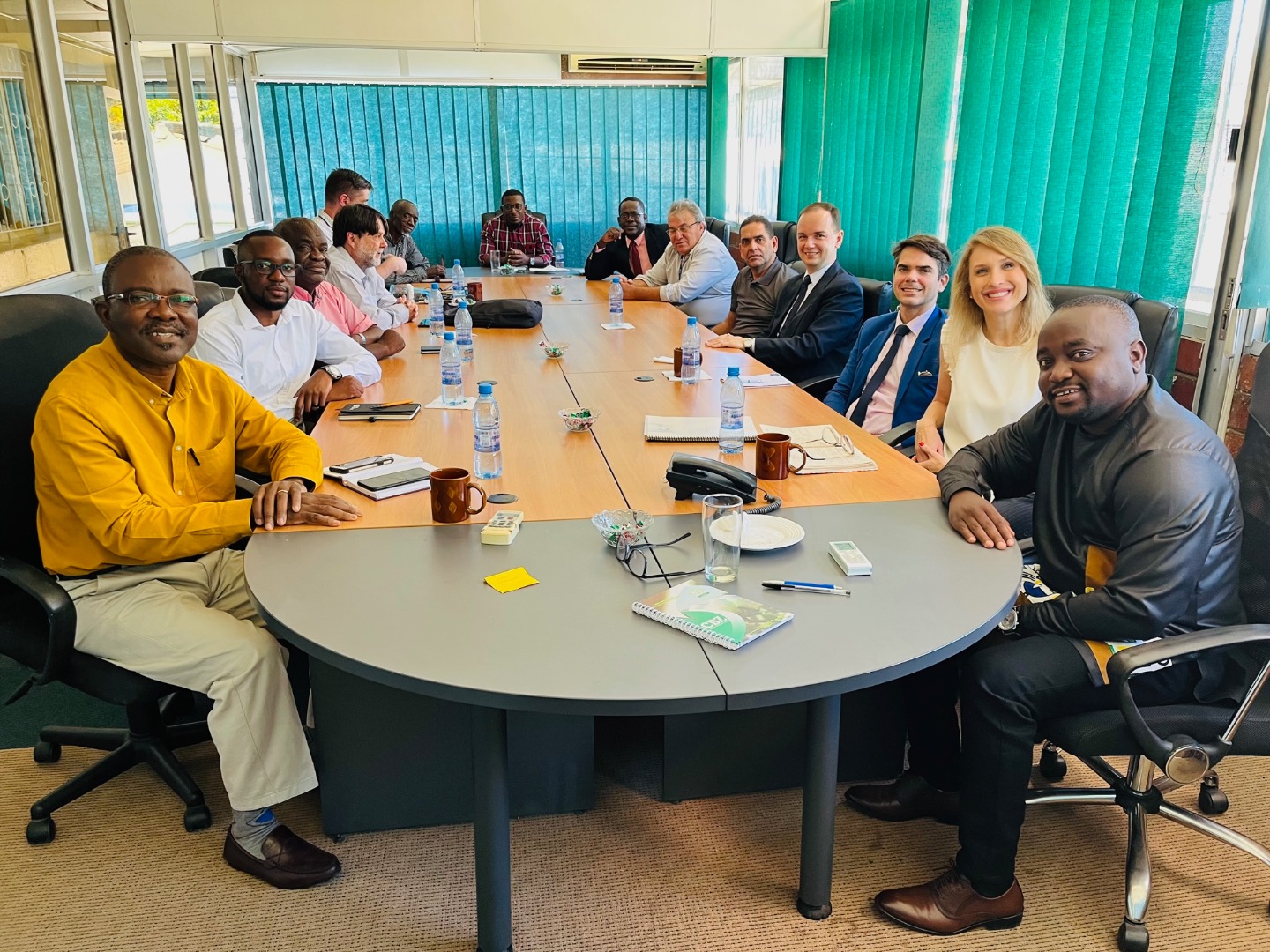 The Brazilian delegation visited Zambia from April 22 to 29 2023, in the context of strengthening South-South cooperation with such country. Under the coordination of the Brazilian Cooperation Agency (ABC), and the Ministry of Foreign Affairs (MRE), ABC representatives and experts from the Technical Assistance and Rural Extension Company of Minas Gerais (EMATER-MG) and the Agricultural Research Company of Minas Gerais (EPAMIG) were part of the delegation, as well as partner institutions under the technical cooperation carried out by the federal government.
The Brazilian delegation visited Zambia from April 22 to 29 2023, in the context of strengthening South-South cooperation with such country. Under the coordination of the Brazilian Cooperation Agency (ABC), and the Ministry of Foreign Affairs (MRE), ABC representatives and experts from the Technical Assistance and Rural Extension Company of Minas Gerais (EMATER-MG) and the Agricultural Research Company of Minas Gerais (EPAMIG) were part of the delegation, as well as partner institutions under the technical cooperation carried out by the federal government.
The team's work included meetings with the Cotton Council of Zambia (CBZ) — a governmental regulatory and cotton crop promotion organism responsible for implementing the national cotton policy (2005) —, as well as the Cotton Development Trust (CDT) — a research, development and rural extension institution —, and the Cotton Association of Zambia (CAZ), which brings together farmers from 34 cotton producing districts.
Current Scenario
According to CBZ representatives, there are about 272,000 smallholder farmers in the country, representing up to 1 million people. The predominant model of fiber production is contract farming, whereby cotton ginneries provide seeds and inputs.
On the occasion, the Brazilian delegation met with the Minister of Agriculture of Zambia, Mr. Reuben Mtolo Phiri. Among the topics addressed, it is worth mentioning the introduction of biofactories intended to produce biopesticides and biofertilizers; soil preparation and analysis; and crop rotation as a way to improve and cycle the soil.
Field Trip
The delegation met on April 26 at CBZ headquarters with the Cotton Association of Zambia, which brings together 7 of the 10 companies operating in the sector, covering 90% of the market. They also visited a cooperative dedicated to artisanal manufacture of fabrics in handlooms. The Brazilian experience could be useful for Zambia to integrate farmers and artisans, coupled with rural extension services, seed processing and community organization.
During the field visit, there were interviews with members of cotton ginneries that work with farmers. The delegation could also visit cotton fields.
On the last day of work, the group visited the facilities of the Cotton Development Trust, where research and rural extension activities are carried out. After seeing the laboratories, the delegation visited demonstration plots, where locally developed techniques for growing cotton were presented. The Brazilian experts were enthusiastic about the technical quality and capacity of the Fund's researchers.
At the end of the mission, it was identified that the main challenge to the development of cotton farming in Zambia is not agronomic in nature, but rather related to the production model. The opinion shared by the Zambian authorities shows that the creation of a competitive market for cotton lint in Zambia, based on the independence of cotton farmers, is an essential objective of any project to be implemented.
